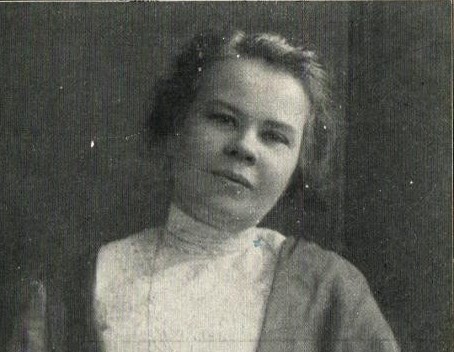Steinberger Sarolta, az első, Budapesten avatott doktornő
DOI:
https://doi.org/10.15170/PAAA.2021.08.01.05Kulcsszavak:
női orvos, nőorvos, első diplomás, doktori avatás, diszkrimináció, Orvosi Kamara, balneológia, antiszemitizmus, felvilágosító előadásokAbsztrakt
Steinberger Sarolta (1875–1966) szülész-nőgyógyász, az első nő, aki diplomát kapott a budapesti egyetemen. 1875. szeptember 12-én született Tiszaújlakon, egy jómódú zsidó család hetedik gyermekeként. Magánúton végezte el a gimnáziumi tanulmányait és érettségizett a kolozsvári Református Kollégiumban.
Ferenc József 1895. november 18-án kelt „legfelsőbb rendelete,” valamint Wlassics Gyula vallás- és közoktatásügyi miniszter 1895. december 19-én tartott királyi leirata lehetővé tette a nők felvételét az orvostudományi, bölcsészettudományi és gyógyszerészi tanulmányokra az egyetemeken. A rendelet utat nyitott Steinberger Sarolta előtt is, akit 1900. november 3-án avattak fel első magyar Pesten végzett orvosnőként. Ezután külföldön folytatta a szülészet és a nőgyógyászat tanulmányait, de balneológusként is dolgozott a Kárpátalja középső részén található Visk Gyógyfürdőben. Hazatérése után orvosként kezdett dolgozni a Tauffer Klinikán. Az alapítóról, Tauffer Vilmosról elnevezett klinika 1881-ben kezdte meg működését, később 1898-ban az épület egy újabb szárnnyal bővült. Később 1928-ban kinevezték az Országos Társadalombiztosítási Intézet (OTI) főorvosává. 1944-ig töltötte be ezt a tisztséget. 1944-től haláláig. 1966. november 24-én nyugdíjba ment, mely időszakot a pesthidegkúti otthonában töltött.
Egész életében kiváló orvos volt, de folyamatosan küzdenie kellett a különböző formákban megnyilvánuló megkülönböztetés ellen, mint nő, mint egy zsidó ember, mint egy „aggszűz”, ami egész életét végigkísérte.
Fotó: Radnóti Zoltán: A legújabbkori Sára élete – Az életet adó – (Életmesék XV.)
Letöltések
Hivatkozások
Clement, Grace: Care, Autonomy, and Justice: Feminism and the Ethic of Care. Routledge, 2018. ǁ [DOI] https://doi.org/10.4324/9780429501838
Forrai Judit: Dr. Kunvári Bella, a modern fogorvosnő, műgyűjtő, kultur-mozgalmár, polihisztor, múzsa. Kaleidoscope (2019):18. 279–290. (http://www.kaleidoscopehistory.hu/index.php?subpage=cikk&cikkid=474)[2020.03.29.] ǁ [DOI] https://doi.org/10.17107/KH.2019.18.276-290
Forrai Judit: Orvosnők társadalmi és szakmai szelekciójának ontológiája. A kezdet. Kaleidoscope (2019):19. 32–58. (http://www.kaleidoscopehistory.hu/index.php?subpage=cikk&cikkid=498) [2020.03.29.] ǁ [DOI] https://doi.org/10.17107/KH.2019.19.32-58
Gyáni Gábor: A bábától az orvosnőig. História 6. (1984):1. 31–34.
Hawkesworth, Mary E.: Globalization and Feminist Activism. Lanham, 2006.
Jefferson, Laura – Bloor, Karen – Maynard, Alan: Women in medicine: Historical perspectives and recent trends. British Medical Bulletin 114. (2015):1. 5–15. ǁ [DOI] https://doi.org/10.1093/bmb/ldv007 II ǁ [WoS] https://www.webofscience.com/wos/woscc/full-record/WOS:000355664800002
Jobst Ágnes: Emancipáció és orvoslás. Lege Artis Medicinae 10. (2000):2. 171–174.
Kapronczay Károly: Hugonnai Vilma emlékezete. Orvosi Hetilap 138. (1997):48. 3060–3061.
Karády Viktor: Kolozsvár, mint iskolaváros a Kárpát-medence elitképzési piacán. In: 140 éves a kolozsvári magyar nyelvű egyetemi oktatás. Szerk. Batiz Enikő – Nagy László – Soós Anna. Kolozsvár, 2013. 237–244.
Kéri Katalin: Viták az orvosnők képzéséről a XIX. század második felében. Orvosi Hetilap 160. (2019):47. 1881–1884. ǁ [DOI] https://doi.org/10.1556/650.2019.HO2634
Lorber, Judith: Women Physicians: Careers, Status, and Power. New York, 1984.
Magyar László András: Egy vitéz doktor. Kaleidoscope (2018):17. 100–104. (http://www.kaleidoscopehistory.hu/index.php?subpage=cikk&cikkid=418) [2020.03.27.] ǁ [DOI] https://doi.org/10.17107/KH.2018.17.100-104
Orsós Ferenc: Európa biológiai veszélyeztetettségének leküzdése. MONE 1936. XII. 12. tartott közgyűlésén. Budapest, 1937. (Klny. MONE)
Orsós Ferenc felszólalása az országgyűlés felsőházának 49. ülésén, 1941. július 18. In: Az 1939. évi június hó 10-ére hirdetett Országgyűlés Felsőházának Naplója. II. kötet. Budapest, 1942. 296.
Pelle János: A magyar orvostársadalom és a „végső megoldás”. Életünk 56. (2018):5–6. 118–144.
Péter H. Mária: Nők az egyetemen. Az első okleveles orvosnők és gyógyszerésznők a budapesti felsőoktatásban és a kolozsvári Ferenc József Tudományegyetemen. Erdélyi Múzeum Egyesület 80. (2018):1. 137–151.(https://eda.eme.ro/xmlui/handle/10598/30921) [2020.03.27.]
Radnóti Zoltán: A legújabbkori Sára élete – Az életet adó – (Életmesék XV.) (http://rabbi.zsinagoga.net/2012/11/26/a-legujabbkori-saraelete-az-eletet-ado-eletmesek-xv/) [2020.06.25.]
Riska, Elianne: Medical Careers and Feminist Agendas: American, Scandinavian, and Russian Women Physicians. New York, 2001.
Szögi László: A nők egyetemi tanulmányainak kérdése a Budapesti Orvostudományi Karon 1896–1926. Orvostörténeti Közlemények 32. (1986):115–116. 139–142.

Downloads
Megjelent
Hogyan kell idézni
Folyóirat szám
Rovat
License

This work is licensed under a Creative Commons Attribution-NonCommercial-NoDerivatives 4.0 International License.










